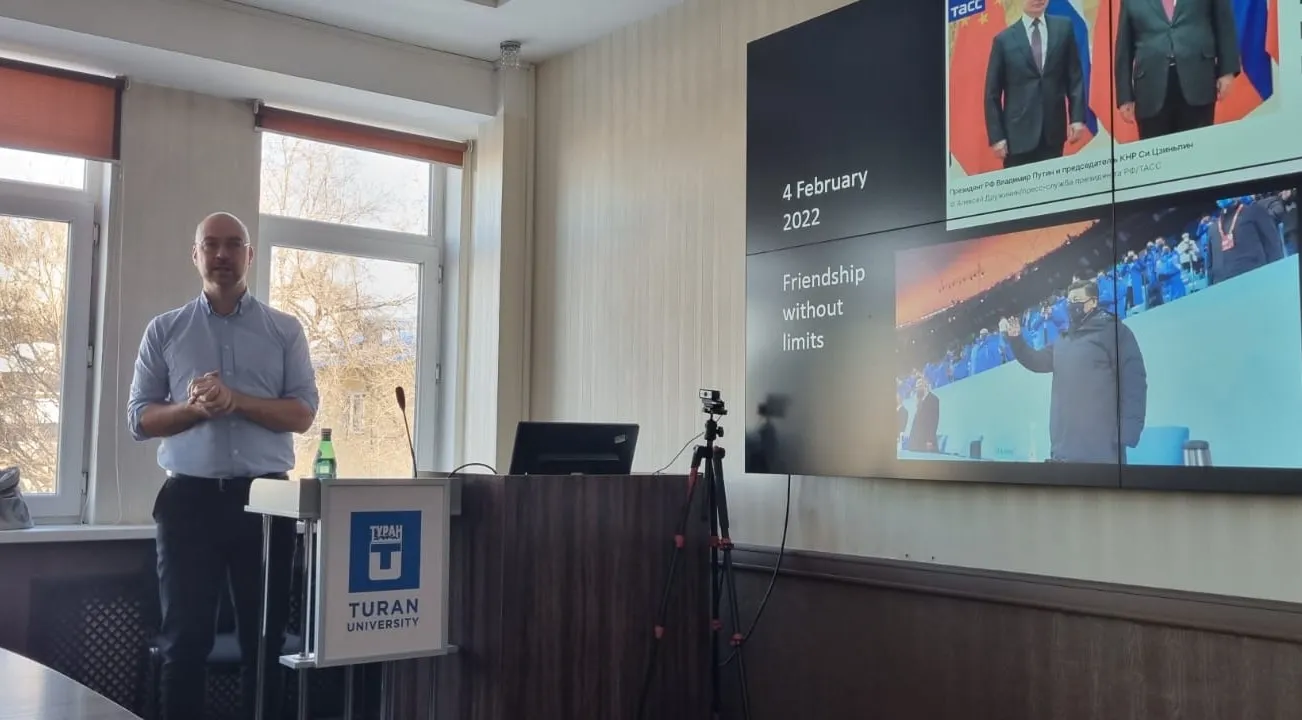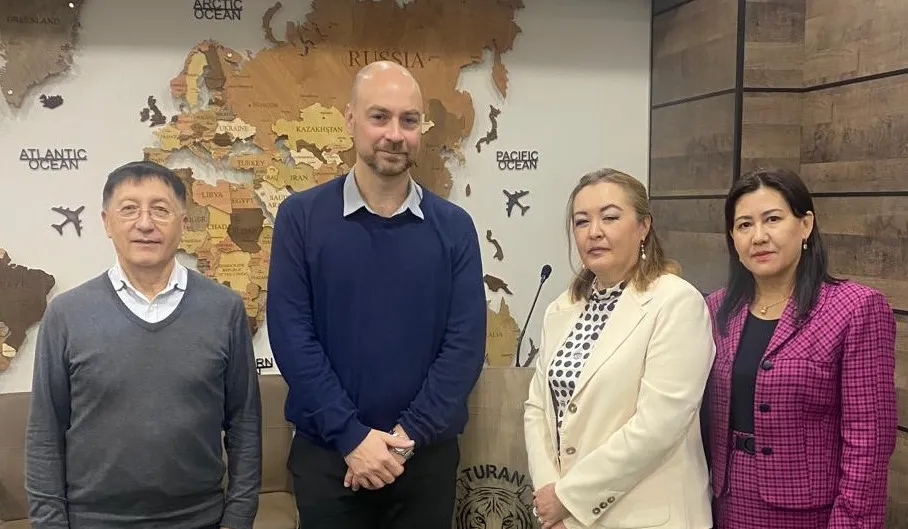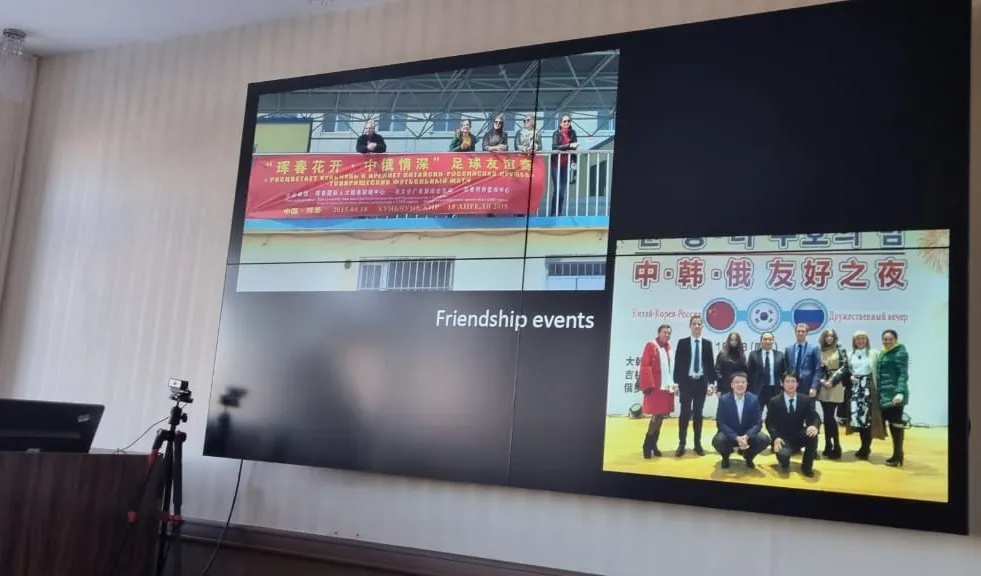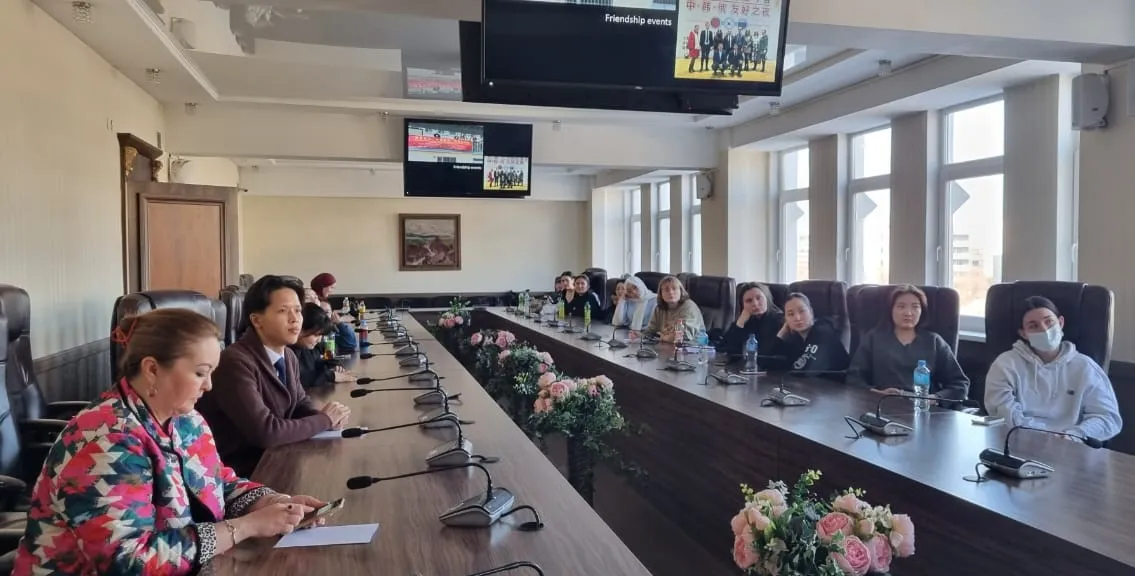The Center for Regional Studies hosted a lecture by the professor of the University of Manchester, Ed Pulford
On January 21, 2025, Ed Pulford, a research intern at the Center for Regional Studies at the Graduate School of International Relations and Diplomacy at Turan University, Lecturer at the University of Manchester, gave a lecture for students and faculty at Turan University on the topic “Borderland friendships: China-Russia relations on the everyday level.” The lecture was devoted to the analysis of the discourse of ‘friendship’, which has different content and different connotations for people of different ethnic, cultural and linguistic backgrounds.
Based on many years of field research conducted in China, Russia, Vietnam and other Eurasian countries, Dr. Ed Pulford analyzed everyday friendly relations between representatives of different communities in the border regions between China and Russia. He explained how representatives of different nations understand friendship in different ways, and how this concept is also used in the field of international relations when officials talk about friendship shared by counterpart states.
The concept of ‘friendship’ was and is used widely to refer to relations between states, especially socialist and post-socialist ones. At the same time, friendship with representatives of another state is expressed and manifested in the daily life of the population of the frontier regions; it is widely represented in public life, and used as a label for cultural and sporting events. The specifics of the ‘friendship’ discourse both at the level of everyday life of the population and at the macro level of state interaction were discussed by the lecturer based on the analysis of ethnographic materials from Russia and China.
Professor Ed Pulford’s lecture aroused great interest among students of the specialties of Regional Studies and International Relations, as well as teachers and researchers of Turan University. Ed Pulford is a renowned anthropologist and sinologist who studies socialism, transnational and cross-border relations in Eurasia. He is the author of the books ‘Mirrorlands’ (2029) and ‘Past Progress’ (2024).






